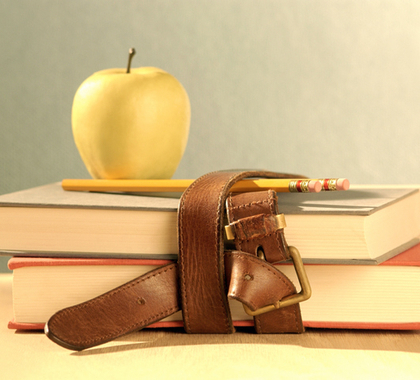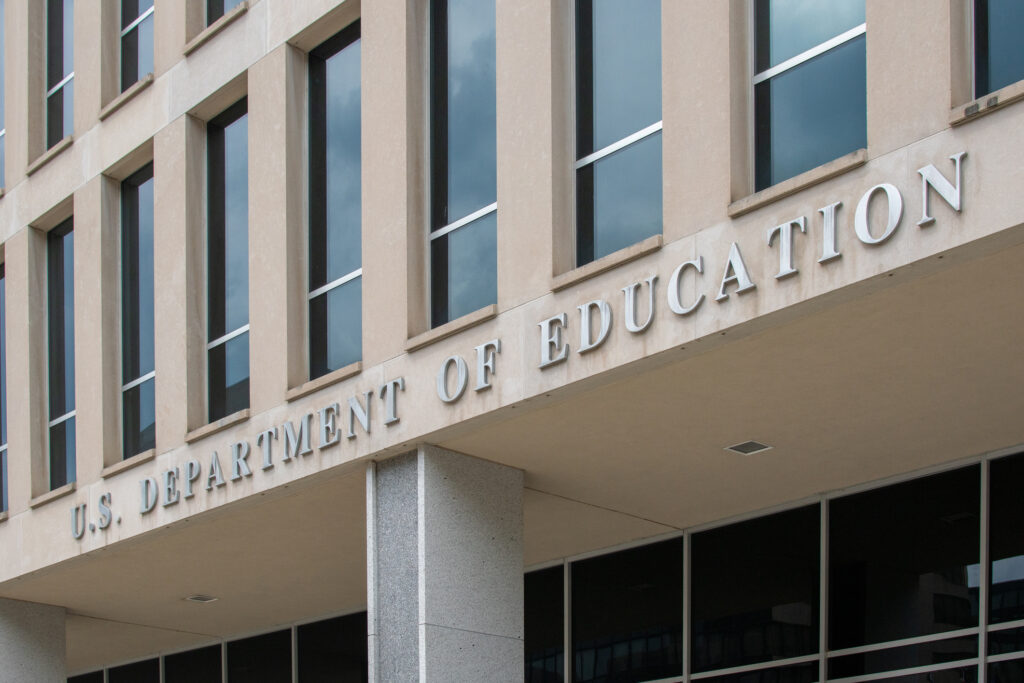Education Next‘s 2018 survey demonstrated 54 percent of Americans support a universal school voucher program. The survey presents a “nationally representative, stratified sample of 4,601 adults … and representative oversamples of the following subgroups: parents with school-age children living in their home (2,129), teachers (641), African Americans (624), and Hispanics (799).”
The 54 percent support for vouchers is a 9 percentage point increase from the 2017 survey results. Furthermore, 67 percent of Hispanics, 53 percent of blacks, and 47 percent of Democrats said they support school vouchers. Disapproval of vouchers dropped to 31 percent overall.
Tax-credit scholarship programs received 57 percent overall approval, including 68 percent support from Hispanics, 61 percent support from blacks, and 58 percent support from Democrats. These programs allow qualifying families to pay for tuition and fees at private and parochial schools using scholarships provided by donors, who, in return, receive tax credits.
The growth in support for these programs is not surprising, as copious empirical research on voucher programs, education savings accounts, and tax-credit scholarships finds these programs offer families improved access to high-quality schools that meet their children’s unique needs and circumstances. Moreover, these programs improve access to schools that deliver quality education inexpensively. Additionally, these programs benefit public school students and taxpayers by increasing competition, decrease segregation, and improve civic values and practices.
Students at private schools are less likely than their public school peers to experience problems such as alcohol abuse, bullying, drug use, fighting, gang activity, racial tension, theft, vandalism, and weapon-based threats. Furthermore, access to school choice programs may reduce potential for criminal behavior.
The Education Next survey also found that 51 percent of respondents graded their local public schools “A” or “B.” Consequently, half of respondents are not satisfied with their local public school(s). The situation is even more dire for black families: Only 29 percent of black respondents gave their local public schools an “A” or “B” grade. For lower-income white respondents, the number was just 47 percent.
As the survey results demonstrate, far too many Americans deem their local public schools to be less than satisfactory. In other words, about half of America believes public schools are failing to provide the quality education that students and taxpayers deserve. A 2018 Cato Institute study found traditional public schools “have substantial negative effects on U.S. society overall associated with a less-educated populace, less social cohesion, and increased taxpayer burdens … relative to private schools of choice.”
The school a child attends should not be determined solely by his or her ZIP code. However, this is currently the case for most children. Additionally, children should not be forced to attend a public school their parents believe is failing to properly educate them or to keep them safe. The goal of public education in the United States should be to enable all parents, no matter their income level, to choose which schools their children attend. Public schools should not hold a monopoly on education. By implementing school choice programs, we can make sure every child has the opportunity to attend a quality school.
The following documents provide more information about private school choice programs.
A Win-Win Solution: The Empirical Evidence on School Choice (Fourth Edition)
http://www.edchoice.org/wp-content/uploads/2016/05/A-Win-Win-Solution-The-Empirical-Evidence-on-School-Choice.pdf
This paper by EdChoice details how a vast body of research shows educational choice programs improve academic outcomes for students and schools, saves taxpayers money, reduces segregation in schools, and improves students’ civic values. This edition brings together a total of 100 empirical studies examining these essential questions in one comprehensive report.
Education Savings Accounts: The Future of School Choice Has Arrived
https://heartland.org/publications-resources/publications/education-savings-accounts-the-future-of-school-choice-has-arrived
In this Heartland Policy Brief, Policy Analyst Tim Benson discusses how universal ESA programs offer the most comprehensive range of educational choices to parents; describes the six ESA programs currently in operation; and reviews possible state-level constitutional challenges to ESA programs.
Ten State Solutions to Emerging Issues
https://heartland.org/publications-resources/publications/ten-state-solutions-to-emerging-issues-2018
This Heartland Institute booklet explores solutions to the top public policy issues facing the states in 2018 and beyond in the areas of budget and taxes, education, energy and environment, health care, and constitutional reform. The solutions identified are proven reform ideas that have garnered significant support among the states and with legislators.
Competition: For the Children
https://heartland.org/publications-resources/publications/competition-for-the-children
This study from the Texas Public Policy Foundation claims universal school choice results in higher test scores for students remaining in traditional public schools and improved high school graduation rates.
The Public Benefit of Private Schooling: Test Scores Rise When There Is More of It
https://object.cato.org/sites/cato.org/files/pubs/pdf/pa830.pdf
This Policy Analysis from the Cato Institute examines the effect increased access to private schooling has had on international student test scores in 52 countries. The Cato researchers found that a 1 percentage point increase in the share of private school enrollment would lead to moderate increases in students’ math, reading, and science achievement.
The Societal Impacts of Private School Choice around the World
http://scholarworks.uark.edu/cgi/viewcontent.cgi?article=4215&context=etd
This doctoral dissertation from Corey A. DeAngelis of the Cato Institute concludes that the causal evidence on private schooling and private school choice programs worldwide that access to them has positive effects on student achievement and non-cognitive skills, increases student effort on standardized testing, and can possibly decrease the proclivity for adult criminal behavior in students.
The Chile Experiment: Comparing Chile’s Free School Choice Model with Quasi-Monopoly Educational Systems in Latin America on Academic Outcomes and School Segregation
https://www.edchoice.org/wp-content/uploads/2018/05/The-Chile-Experiment-by-Mariano-Narodowski.pdf
This report from EdChoice examines the available achievement and segregation data of Chile’s school choice-based system compared to Latin American countries with similar socioeconomic structures and common educational histories, but with traditional education systems.
Protecting Students with Child Safety Accounts
https://heartland.org/publications-resources/publications/protecting-students-with-child-safety-accounts
In this Heartland Policy Brief, Vicki Alger, senior fellow at the Independent Women’s Forum and research fellow at the Independent Institute, and Heartland Policy Analyst Tim Benson detail the prevalence of bullying, harassment, and assault taking place in America’s public schools and the difficulties for parents in having their child moved from a school that is unsafe for them. Alger and Benson propose a Child Safety Account program, which would allow parents to immediately have their child moved to a safe school – private, parochial, or public – as soon as parents feel the public school their child is currently attending is too dangerous to their child’s physical or emotional health.
High School Options and Post-Secondary Student Success: The Catholic School Advantage
http://digitalcommons.lmu.edu/cgi/viewcontent.cgi?article=2021&context=ce
This peer-reviewed study published in the Journal of Catholic Education finds that students who attended Catholic high schools had higher college GPAs, were more likely to graduate, and were more likely to graduate with a STEM degree. This Catholic school advantage is wide-ranging, benefiting many subgroups of students, including non-white, low-income, urban, and low-achieving students.
Nothing in this Research & Commentary is intended to influence the passage of legislation, and it does not necessarily represent the views of The Heartland Institute. For further information on this subject, visit School Reform News, The Heartland Institute’s website, and PolicyBot, Heartland’s free online research database.
The Heartland Institute can send an expert to your state to testify or brief your caucus; host an event in your state; or send you further information on a topic. Please don’t hesitate to contact us if we can be of assistance! If you have any questions or comments, contact John Nothdurft, Heartland’s director of government relations, at [email protected] or 312/377-4000.




